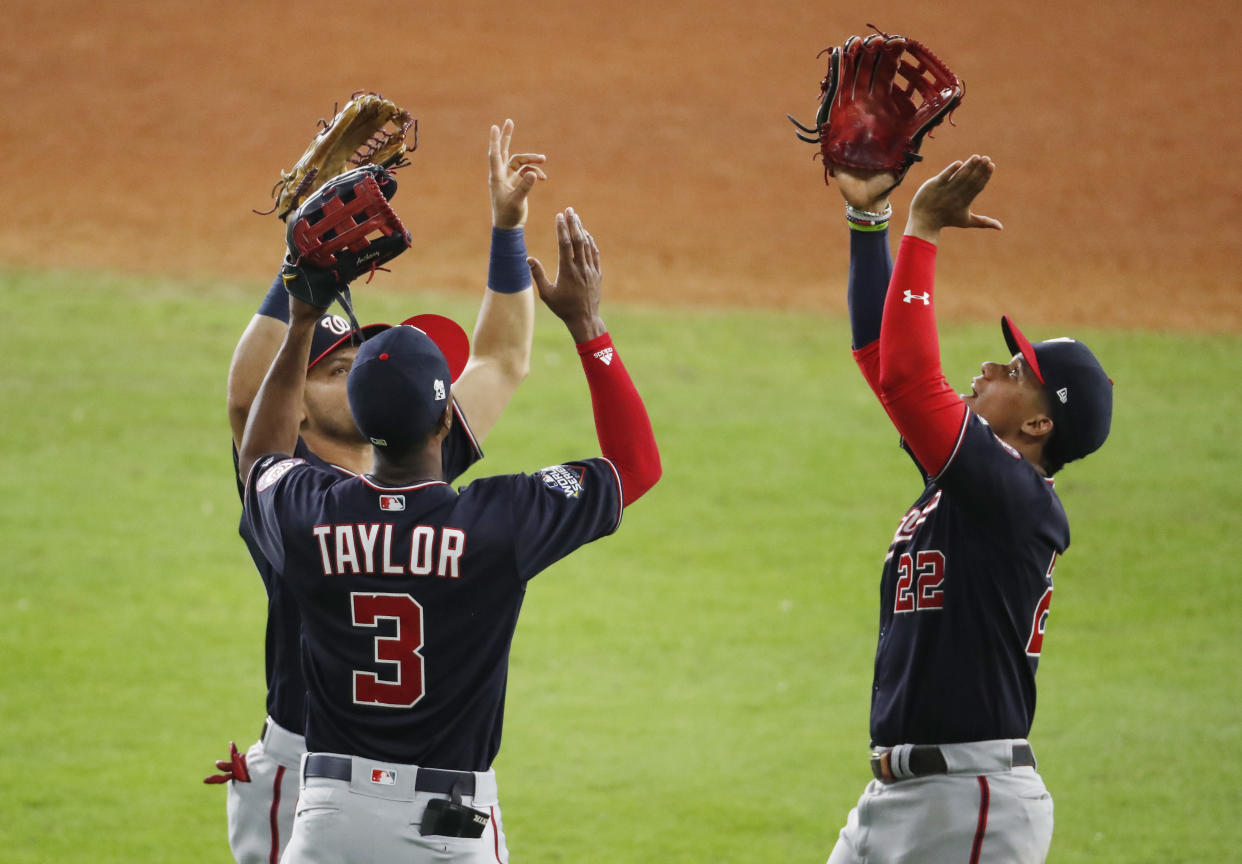Nationals are sleeping like astronauts while chasing World Series title

The Washington Nationals are two wins away from their first World Series title. Is it because of straight-up magic? Is it that “Baby Shark” rallying cry?
How about very specific bed times and sleep schedules? The Nationals started the system in spring training and have focused on it more since the postseason started with help from Dr. Meeta Singh, the Detroit Free Press reported.
“It’s similar to how we make sleep schedules for astronauts,” she said. “It’s very precise.”
Nationals follow sleep schedules
Dr. Meeta Singh is a sleep expert based in Michigan who began by working with the Detroit Lions, Red Wings, Tigers and Pistons. She’s spoken at MLB, NFL and NHL meetings and worked with the Belgium national soccer team earlier this year. She even worked with the New Orleans Saints and received a game ball after their 2017 win in London.
Singh began working with the Nationals in spring training, per the Free Press, and gave broad as well as individual advice.
“They want to control as much as they can, everything. This team is really disciplined. This is a team that would call me, and say, ‘Tell me exactly what you want to do for the next games.’”
She began sending sleep schedules every two weeks, mapping it out in a grid after looking at upcoming game times and travel. It included bed times, what to do before bed, when to nap and when to travel. During the postseason, she upped it to every three or four days.
It’s similar to how NASA handles sleep schedules for astronauts, who may experience 16 sunrises in a 24-hour day. They follow a strict schedule ahead of launch and follow it in space. NASA also developed ways to limit light, which causes disruptions in sleep, as Singh recommended players do with orange-colored sunglasses.
Team, player specific advice
After an afternoon game 2 of the NLCS, she advised the team to stay overnight, get rest, and then fly back home.
“It’s little things like that and the Nationals are really good at it,” Nationals second baseman Brian Dozier told the Free Press. “It goes to show you that they really care about performance and whatever helps you.”
He said the team tried to follow her advice throughout the season, but with heightened stakes in the postseason they’ve followed it “really extensively.”
Singh told the Free Press she takes into account late-night partying after victories.
“But what I’ve always told them: 'On those days, when life happens, and you know you might not get enough sleep, the secret is to get enough sleep beforehand and then playing catch up once things settle down.'”
That’s exactly what the Nationals did in between the NLCS sweep and the World Series start in Houston. Sean Doolittle told NBC Sports Washington he woke up at 11 a.m. the day after clinching, walked the dogs, picked up bagels and then went back to sleep until 5:30 p.m.
Why sleep matters
Young adults ages 18 to 25 and adults ages 26 to 64 are recommended to get seven to nine hours of sleep a night, per the National Sleep Foundation. The foundation also recommends having a strict sleep schedule. But most don’t get close to that and struggle with going to bed on time.
Professional athletes are no different. Their work schedule varies, they travel a lot through different time zones and baseball players have a grueling schedule. It could be characterized as “shift work,” which causes circadian disruption and was classified as a probable human carcinogen by the World Health Organization’s International Agency for Research on Cancer.
Getting enough sleep optimizes reaction time, accuracy, decision-making, ability to prevent injuries and recovery from injuries.
Singh’s presentations at the MIT Sloan Sports Analytics Conference goes more in-depth on the importance of sleep and its impact.
In the NBA, Tobias Harris called sleep deprivation a looming issue that he believes will be talked about the same way concussions are talked about in the NFL.
More from Yahoo Sports:


